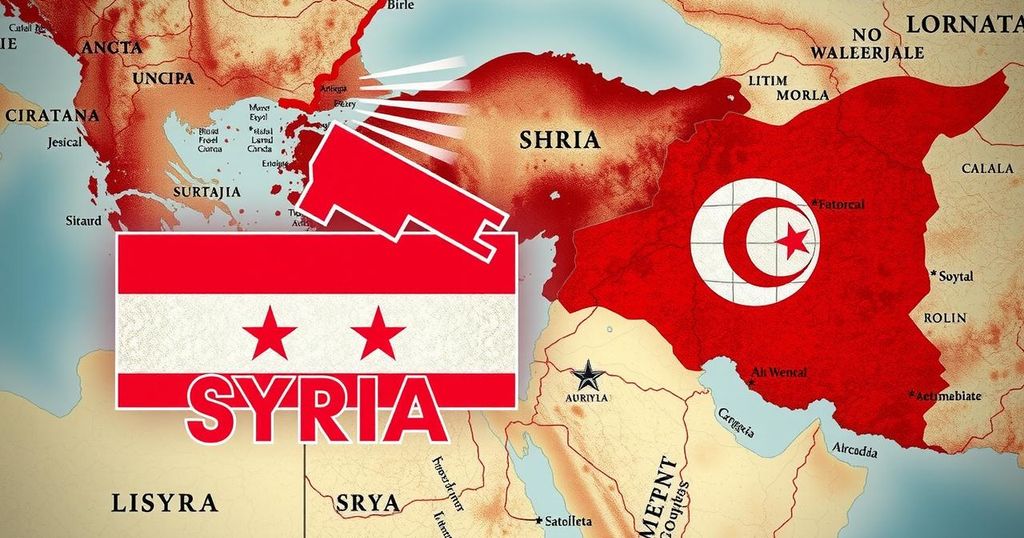Russia’s Fragile Strategic Shift from Syria to Libya: Implications for the West
The article analyzes Russia’s shift from Syria to Libya, showcasing the precarious nature of its alliances, particularly with figures like Assad and Haftar. It discusses the inherent vulnerabilities these leaders face due to their dependence on Russian support and emphasizes the need for the West to address Libya’s structural weaknesses rather than relying on opportunistic engagements.
Russia is transitioning its focus from Syria to Libya, a movement prompted by the recent instability in Damascus that underscores the precariousness of relationships built on coercion. The fall of Assad’s regime, despite extensive Russian support, illustrates a broader trend of fragility and dependency in these alliances. Moscow is now strategically repositioning its military presence, moving troops and equipment to Libya while closely aligning with Libyan National Army Commander Khalifa Haftar. As Western nations seek to distance Haftar from Russian influence, they may miscalculate the depth of his reliance on Moscow’s military and logistical support.
The historical context of Russia’s interest in Libya is rooted in its long-standing strategy to expand its footprint in the Mediterranean. The presence of Haftar mirrors the reliance of Assad on Russian support; both leaders bartered political autonomy for survival. However, their power is inherently unstable, as both portray an image of strength masking significant vulnerabilities. The West’s disengagement during Libya’s transitional period facilitated a power vacuum that countries like Russia have exploited.
The West’s underestimation of Haftar’s reliance on external support to sustain his military capabilities highlights a significant flaw in its strategy. Washington’s attempts to remove Haftar from Moscow’s sphere are misguided, given that his strength is contingent upon Russian resources and military backing. Moscow utilizes Haftar as a proxy to further its interests while reinforcing his dependence, indicating a transactional relationship that lacks genuine loyalty.
The Kremlin’s engagement with the Haftar family underscores this dynamic, as the Haftars have increasingly integrated their political strategy with Russian interests. This trend accentuates the pitfalls of dynastic governance, where dependence on a foreign backer may precipitate instability rather than strength. The West’s efforts to forge partnerships with figures like Haftar must abandon any assumptions of leverage, recognizing the fragility inherent in such alliances.
Moving forward, addressing Libya’s structural vulnerabilities rather than engaging in opportunistic alliances will be crucial for the West. To counteract external manipulation, there must be a focus on strengthening governance, building economic resilience, and fostering inclusive political dialogue. Ultimately, the lessons drawn from Syria and Libya demand a coherent and preemptive strategy rather than reactive measures, as any further missteps may entrench adversarial influences within the region.
The article discusses Russia’s strategic shift from its operations in Syria to a renewed focus on Libya, emphasizing the complexities of these geopolitical maneuvers and the fragility of alliances formed under duress. It highlights the historical context of Russian ambitions in the Mediterranean and the role of key figures like Bashar al-Assad and Khalifa Haftar in facilitating or undermining Russian objectives. The implications for Western policymakers, particularly regarding their interactions with regional leaders and the importance of addressing underlying systemic issues, are also examined.
In summary, Russia’s pivot from Syria to Libya reveals significant vulnerabilities within the alliances it fosters through coercion and opportunism. The reliance of both Assad and Haftar on Russian support highlights the inherent risks of such relationships. To effectively counterbalance Moscow’s influence, the West must shift its focus from attempting to extract leverage from individuals like Haftar and instead work on addressing Libya’s systemic weaknesses. Prioritizing stability and governance in the region will be essential in preventing the further entrenchment of adversarial powers.
Original Source: www.atlanticcouncil.org




Post Comment